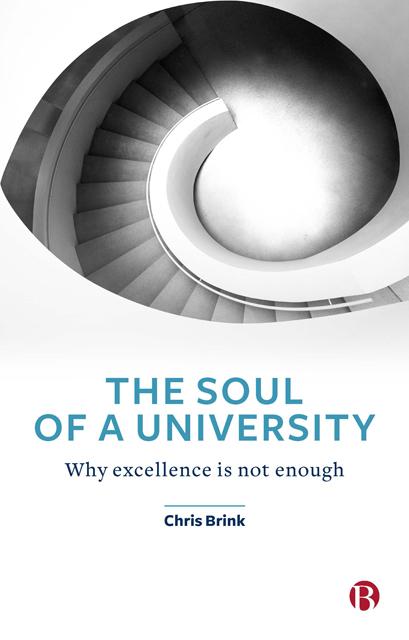Book contents
- Frontmatter
- Miscellenous Frontmatter
- Dedication
- Miscellenous Frontmatter
- Contents
- List of Illustrations
- List of Abbreviations
- Acknowledgements
- Prologue
- Introduction
- 1 The Standard Model University
- 2 Rankings and League Tables
- 3 Quality in Higher Education
- 4 Tales of Quality, Equality and Diversity
- 5 Rank Order of Worth
- 6 Linear Thinking
- 7 Another Dimension
- 8 Ideas of a Civic University
- Epilogue On the Supreme Good, by Boethius of Dacia
- Notes
- Index
4 - Tales of Quality, Equality and Diversity
Published online by Cambridge University Press: 21 April 2023
- Frontmatter
- Miscellenous Frontmatter
- Dedication
- Miscellenous Frontmatter
- Contents
- List of Illustrations
- List of Abbreviations
- Acknowledgements
- Prologue
- Introduction
- 1 The Standard Model University
- 2 Rankings and League Tables
- 3 Quality in Higher Education
- 4 Tales of Quality, Equality and Diversity
- 5 Rank Order of Worth
- 6 Linear Thinking
- 7 Another Dimension
- 8 Ideas of a Civic University
- Epilogue On the Supreme Good, by Boethius of Dacia
- Notes
- Index
Summary
Cape Town
In every man’s writings, the character of the writer must lie recorded.
Thomas Carlyle
Any opinion on what constitutes the good is unlikely to be objective, and any attempt to make it so is likely to be boring. Plato reputedly once gave a public lecture titled ‘On the Good’, but since he delivered his discourse in mathematical terms most of the audience had left before he eventually reached the gnomic conclusion that ‘the Good is One’. An opinion on what makes a good university, particularly from a practising academic, is even less likely to be objective. At some point in a discourse on the good university, therefore, there should be a declaration of interest – some reference to the personal circumstances and social conditioning of the author which may impact on their judgement. For that reason, this chapter has a more personal slant, and relates some experiences of quality and equality. The first tale is about the University of Cape Town in the 1990s, and is set against the background of mathematics.
To understand why mathematics is relevant to equality and diversity we have to go back to what happened in the South African Parliament in June 1954. This was when Dr Hendrik Verwoerd, Minister of Native Affairs, introduced a piece of legislation called the Bantu Education Act. Dr Verwoerd addressed the Senate as follows:
The school must equip the Bantu to meet the demands which the economic life of South Africa will impose on him… There is no place for him in the European Community above the level of certain forms of labour. Within his own community, however, all doors are open.… Until now he has been subject to a school system which drew him away from his own community and misled him by showing him the green pastures of European society in which he is not allowed to graze.… What is the use of teaching a Bantu child mathematics when it cannot use it in practice? … That is absurd. Education is not, after all, something that hangs in the air. Education must train and teach people in accordance with their opportunities in life.… It is therefore necessary that native education should be controlled in such a way that it should be in accordance with the policies of the State.
- Type
- Chapter
- Information
- The Soul of a UniversityWhy Excellence Is Not Enough, pp. 153 - 192Publisher: Bristol University PressPrint publication year: 2018



